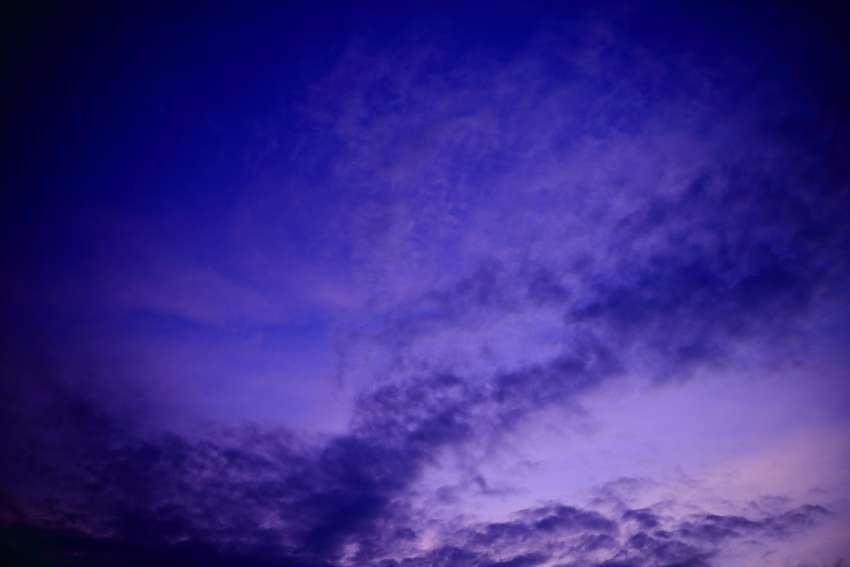Blue hour in photography is that magical time right before sunrise or after sunset when the sky turns a stunning shade of blue.
It’s a brief period with soft, diffused light, creating a dreamy atmosphere for capturing beautiful pictures.
With its delicate, dreamy lighting, twilight is a favorite time for photographers to capture stunning portraits, landscapes, and cityscapes.
However, taking full advantage of this magical moment can be challenging, requiring special gear, settings, and a careful approach to artificial lighting.
Luckily, some tips can help you achieve outstanding results. For example, AI upscaling techniques can enhance the details and sharpness of photographs taken during the blue hour, resulting in stunning high-resolution images.
And in this comprehensive guide, you’ll find more info to make the most of this enchanting time of day.
Recommended Reading: Luminar Neo Review, Features, Pricing: AI-based Photo Editor
Understanding the Blue Hour in Photography
So what is this magical moment? We’re talking about the time between dusk and night with a special light and when the sun is about to come over the horizon.
During these moments, the light takes on a unique ultramarine hue that is almost impossible to replicate in a photo editor.
In reality, this period lasts about half an hour on average when the sky turns a beautiful blue or purple.
At these times, the lighting and the panorama below are balanced, allowing you to get unique shots of nature, people, and the city.
By the way, you can also use Luminar Neo’s AI image upscaling to increase the resolution of your photos naturally and create an excellent composition for twilight cityscapes.
Such an option is handy for enhancing the detail and color of the city by effectively removing noise and improving the sharpness and clarity of buildings, streets, and other urban elements.
Key Features of Blue Hour
So that you have fewer questions later, let’s take a quick look at some of the most significant features of blue hour or twilight photography:
The sky takes on a deep color that can be very attractive in photos. This light is less harsh than daylight and can make your images more peaceful and soothing.
This time is prevalent for capturing cityscapes, as the twilight can create a beautiful contrast with the artificial lighting of buildings and streets.
Such an hour can be challenging because of the rapidly changing light conditions. It’s essential to be prepared and have the right gear.
There is one more important thing. Because the light during the twilight is dimmer than during the day, longer exposures are needed to capture enough light. This can create interesting effects such as motion blur.
Recommended Reading: 10 Best Apps To Find Clothes From Pictures
How to Calculate a Blue Hour
To figure out the blue hour, grab your smartphone. Find out when the sun sets using a weather app or a quick online search.
Blue hour usually kicks in 20-30 minutes after sunset. Plan accordingly for that dreamy, soft blue light in your photos!
The exact time will vary depending on your location and the season, as it is affected by latitude, longitude, and altitude.
However, a general rule of thumb is that this hour occurs approximately 20-30 minutes before sunrise and after sunset.
Several websites and smartphone apps can help you calculate the twilight time based on your location and the current date.
Simple Tips & Tricks for Blue Hour Photos
Although it seems very difficult to create them, it is not. Photographing the Blue Hour is easy enough; the most challenging part is getting there on time. Plus, our tips and tricks are sure to help!
1. Plan Ahead
Twilight is short, so you need to plan to make the most of it. Check the weather forecast and determine when the sun will set in your location. Arrive early to scout out the best locations and set up your equipment.
2. Take Photos in RAW
Shooting in the RAW format gives you more flexibility when editing your photos later. You can adjust more to exposure, white balance, and other settings without sacrificing image quality.
Plus, AI image upscale software like Luminar Neo can do wonders with RAW files because they contain more information that can be used to improve the clarity of the final picture.
3. Build a Strong Composition
Some elements in your photos add depth and interest to your pictures. Look for exciting rocks, trees, or other objects to include in your images.
Also, when upscaling photos taken during the blue hour, it’s essential to consider the technical aspects and how they affect the image’s composition.
Details and colors added or enhanced can significantly affect the overall aesthetic of the photo.
4. Choose a Wide-Angle Lens
A wide-angle lens will help you capture more of the scene and create a sense of depth in your photos.
It’s an excellent choice for landscape and cityscape photography during the blue hour. Wide-angle lenses typically have a focal length of less than 35mm and can capture a larger area than a standard lens.
Recommended Reading: 8 Best Animal Identifier Apps [Find Animals in Picture]
The Best Camera Settings for Blue Hour Shots
Set your camera to a low ISO for less noise when capturing blue hour shots. Opt for a wide aperture to let in more light.
Use a slow shutter speed to capture the soft blue tones. Experiment with white balance to enhance the cool hues.
Lastly, consider using a tripod for stability in low-light conditions. Happy shooting!

